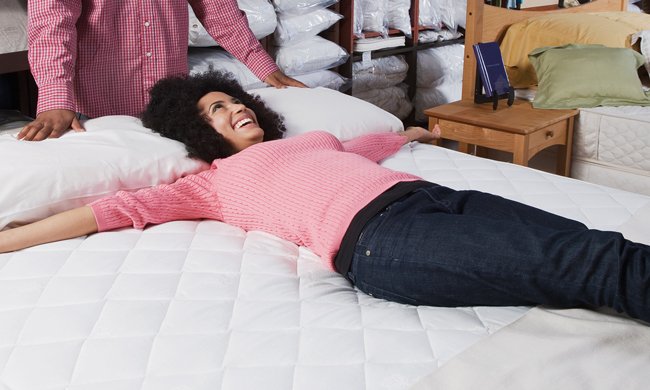5 Things to Consider When Buying a Mattress
Apr 10, 2017 01:33AM ● By Family Features

When it comes to buying a mattress, individual needs and preferences vary across the board. Just like there is no “one size fits all” for jeans, there is not one mattress for everyone. What might be comfortable and supportive for one person may not be the best fit for someone else.
Having a wide variety of options is key to picking out your new mattress because you can mix and match different levels of comfort with size and adjust your pick based on your sleeping position and surrounding factors. When choosing the mattress that’s best for you, consider these factors.
Size
The basic mattress sizes include twin, full, queen, king and California king. Choosing a size depends on the amount of space you have available, whether or not you share your bed with a significant other and personal preference. Think about your current sleeping situation and if you’re happy with the amount of space you have to sleep. If you’re fighting for space with your partner, it might be time to think about upgrading to a larger size. If your room is small and your bed is taking over the space, downsizing might be a good option.
Comfort Level
Mattresses come in all different levels of comfort ranging from firm to plush to pillow top as well as contoured and personalized. To provide a variety of comfort levels for mattress shoppers, Mattress Firm offers a Comfort by Color system that categorizes levels of comfort to help customers shop in their comfort zone.
“The Comfort by Color system makes it easy for customers to come into a store and immediately see which mattresses fall into the category they’re looking for,” Mattress Firm CEO Ken Murphy said. “Whether they’re looking for a pillow top or a firm mattress, the variety of options helps customers pick a bed that’s specifically tailored to their needs.”
Sleeping Position
Another important factor to consider when choosing a mattress is your sleep position. Knowing whether you are a front, back, stomach or side sleeper, or move around frequently throughout the night, will help you narrow down your options and choose a mattress that accommodates your needs. For example, side sleepers might get better sleep with a plush or pillow top mattress that supports the spine’s natural curve versus a mattress with a firmer comfort level.
Temperature
Temperature plays a role in how you sleep, and it’s not limited to hot summer temperatures. Heavy comforters, heat settings and even your mattress can affect the quality of your sleep. While pillow tops and traditional memory foam can make for a warmer night’s sleep, Serta’s iComfort mattresses contain cooling technology to help you sleep at a comfortable temperature all night long. If you naturally heat up in your sleep, cooling technology may be something to consider.
Pain
If you experience any sort of pain – especially while you sleep – your mattress can either help or hurt that pain. For example, if you have lower back pain, you may need a firmer mattress to help keep your back aligned. By identifying any pain you have and being transparent when shopping, you can find the right mattress to help alleviate discomfort and improve your sleep.
For more information, visit MattressFirm.com.
Photo courtesy of Getty Images

